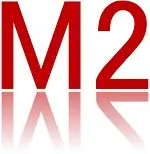
Surface electroless silver plating involves preparation and pretreatment steps to ensure proper adhesion, various plating methods with their advantages and limitations, control and quality assurance measures to maintain consistent results, and troubleshooting techniques to address common issues. By understanding these techniques and implementing appropriate measures, successful surface electroless silver plating can be achieved, leading to high-quality, durable, and functional silver-plated surfaces.

Thread tapping is a complex process that requires precision and accuracy to ensure that the threads are cut correctly. The process involves using a tap, which is a cutting tool that is designed to cut threads into the surface of the custom part. The tap is rotated to cut the threads into the part, and it is important to ensure that the tap is aligned correctly to avoid damaging the part.

In custom manufacturing, achieving a durable smooth surface finish is crucial for producing high-quality parts that meet the requirements of the application. Surface finishing techniques, whether chemical or thermal, play a significant role in custom manufacturing by altering the surface of the part to improve its properties, such as wear resistance, corrosion resistance, or improved appearance.

Designing and manufacturing injection mold slides requires careful consideration and attention to detail. By following the steps outlined in this article and implementing best practices, you can ensure the production of high-quality injection mold slides that will produce high-quality parts efficiently and effectively.

EDM is a valuable tool in custom manufacturing, offering great precision and versatility in creating complex and precise parts. It enables custom manufacturers to create complex and precise parts that were previously impossible or too difficult to create using traditional machining methods. By considering the specific needs of the project and the advantages and limitations of the different processes, custom manufacturers can choose the process that best suits their needs.

Fixtures play a critical role in CNC machining, providing a secure and accurate hold on workpieces during the machining process. By using fixtures, manufacturers can achieve maximum precision and efficiency while reducing manufacturing costs and minimizing the risk of errors.

PTFE is a type of synthetic fluoropolymer plastic that is known for its unique combination of properties. It is made of molecules that consist of carbon and fluorine atoms, which are arranged in a repeating pattern. PTFE is a high-performance plastic that is used in various applications due to its excellent resistance to heat, chemicals, and moisture.

Custom small batch production is a powerful tool for businesses looking to stay ahead of the curve and meet the evolving needs of customers. By embracing this approach, businesses can differentiate themselves from competitors, appeal to a broader customer base, and stay ahead of the curve in a rapidly changing business environment.

Aluminum 2017 is an excellent material for CNC machining due to its unique combination of properties, including high strength, excellent machinability, and resistance to corrosion. The material is commonly used in several industries, including aerospace, automotive, defense, and electronics, to produce high-quality and precise parts and products.

Coloring your rapid prototypes can provide several benefits, including enhancing the appearance and functionality of your design, increasing the marketability of your product, and enabling you to test different color schemes and finishes before manufacturing. Selecting the right coloring method for your rapid prototypes is an essential step in the design process. By choosing the method that best suits your needs, you can create a prototype that accurately represents your vision and meets the requirements of your target market.










